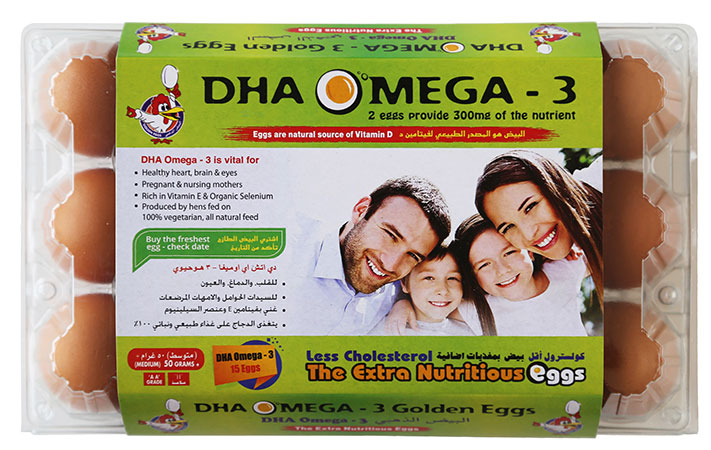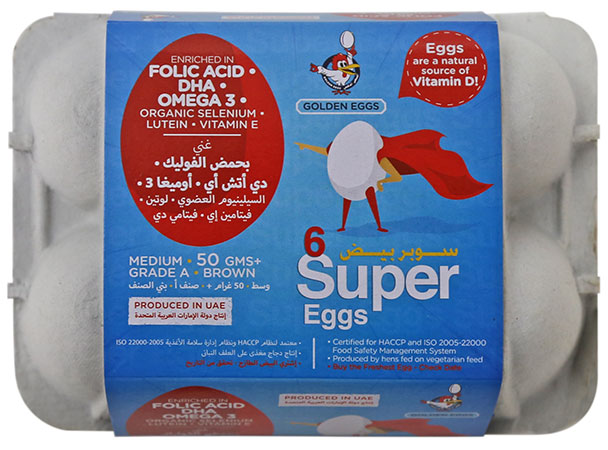Eggs are one of the most widely consumed items in the world. When shopping for eggs, there are a few things most of us do. First, you choose the type of eggs that you like, whether that’s certified organic, conventional, or from a local farm. Then we check the expiration or best-by date on the egg carton and compare it to the date of the others on the shelf. And finally, there’s the visual inspection to make sure all those eggshells are intact. But did you know that there is more info printed on the cartons? The vast number of terms on egg carton labels can leave grocery shoppers feeling dazed and confused. Some labels indicate that the eggs inside are “Natural,” while others boast “Free-range” or even “Certified Organic.” What does all this mean? It is quite informative if you really know what it is! Once you’ve cracked the egg carton code, you’ll have no trouble picking out fresh eggs of egg-cellent quality! We get the experts at Al Jazira Poultry Farm LLC to decode the labels for us.
Why Does It Matter?
It’s obvious newly packaged eggs taste better, but an egg’s quality can considerably decline over time. As an egg ages, it loses moisture and carbon dioxide, making the whites thinner and the yolk more susceptible to breaking. And when you eat old, expired eggs, your risk of getting a food-borne disease from them increases.
Brown/white – what does it mean?


Shell colour may differ depending on breed of the hens. Colour is just a natural pigment produced by the bird ,that is deposited on shell before hens lay the eggs. Hens having white feathers usually lay white eggs and those with brown ones lay brown eggs, all the birds of a particular breed lay eggs of same colour. Colour of hen’s ear lobes shows what colour eggs the hen would lay. The eggshell is basically composed of calcium which is white in colour and pigments colouring the shell are added by the hen prior to laying of eggs.
Omega 3 in different quantities


Omega 3 fatty acids are group of essential fatty acids, in sense they cannot be made in the body and have to be supplemented by food, which play an important role in development, maintaining and functioning of various organs such as brain, eyes, blood vessels, etc. Amongst Omega 3 fatty acids DHA is the most important one followed by EPA . RDA – Recommended Daily Allowance -250 -500mg of EPA plus DHA / day. The hens that produce Omega-3 eggs are fed a diet with plenty of Omegas.


Organic, Natural, Free range, Certified Organic


Organic eggs are those eggs which are produced by hens raised under the organic system of farming, following required protocols of organic standards, and fed with only organic feed. These eggs are certified by the certifying bodies as organic after evaluating their farming process and their diligence to the protocols. The eggs can be deemed as Organic only if it is certified by the competent authorities.
Conventional, Cage-free and Free range are terms used for the way the chickens are housed. In cages, or cage-free or access to a yard area.
Hopefully the information above will help you buy eggs with confidence the next time you’re at the store!
Visit www.aljazirapoultry.com to know more.
The Good:
Eggs are one of the few foods that should be classified as “superfoods.” They are loaded with nutrients, some of which are rare in the modern diet and can be made into a variety of dishes that appeal to all!
The Bad:
It is believed that excessive egg consumption can lead to cholesterol if not balanced with the right diet.
The Trendy:
In 2019, the photo of an egg became the most-liked photo on Instagram with 32 million likes. What more can we say!!!
